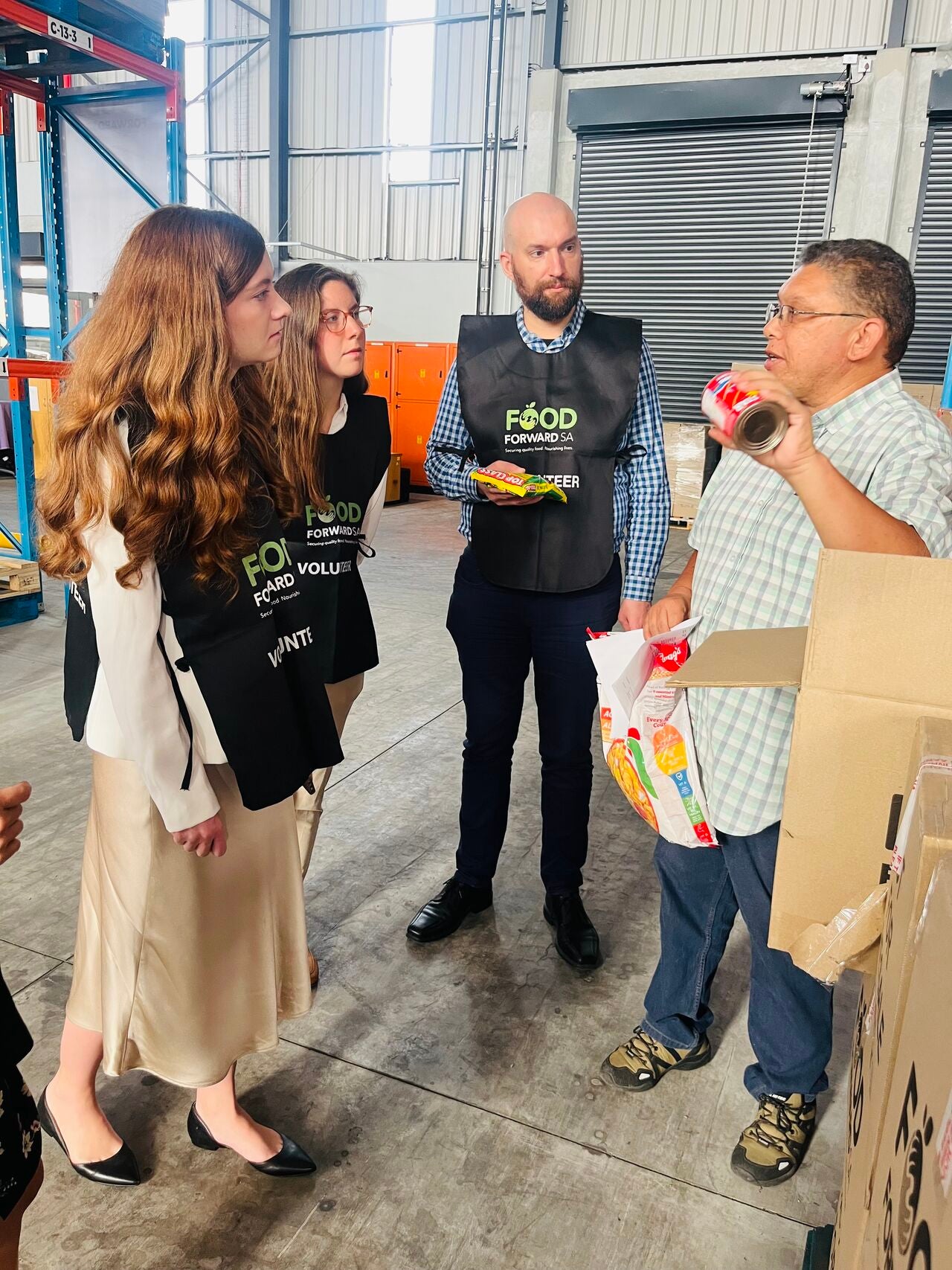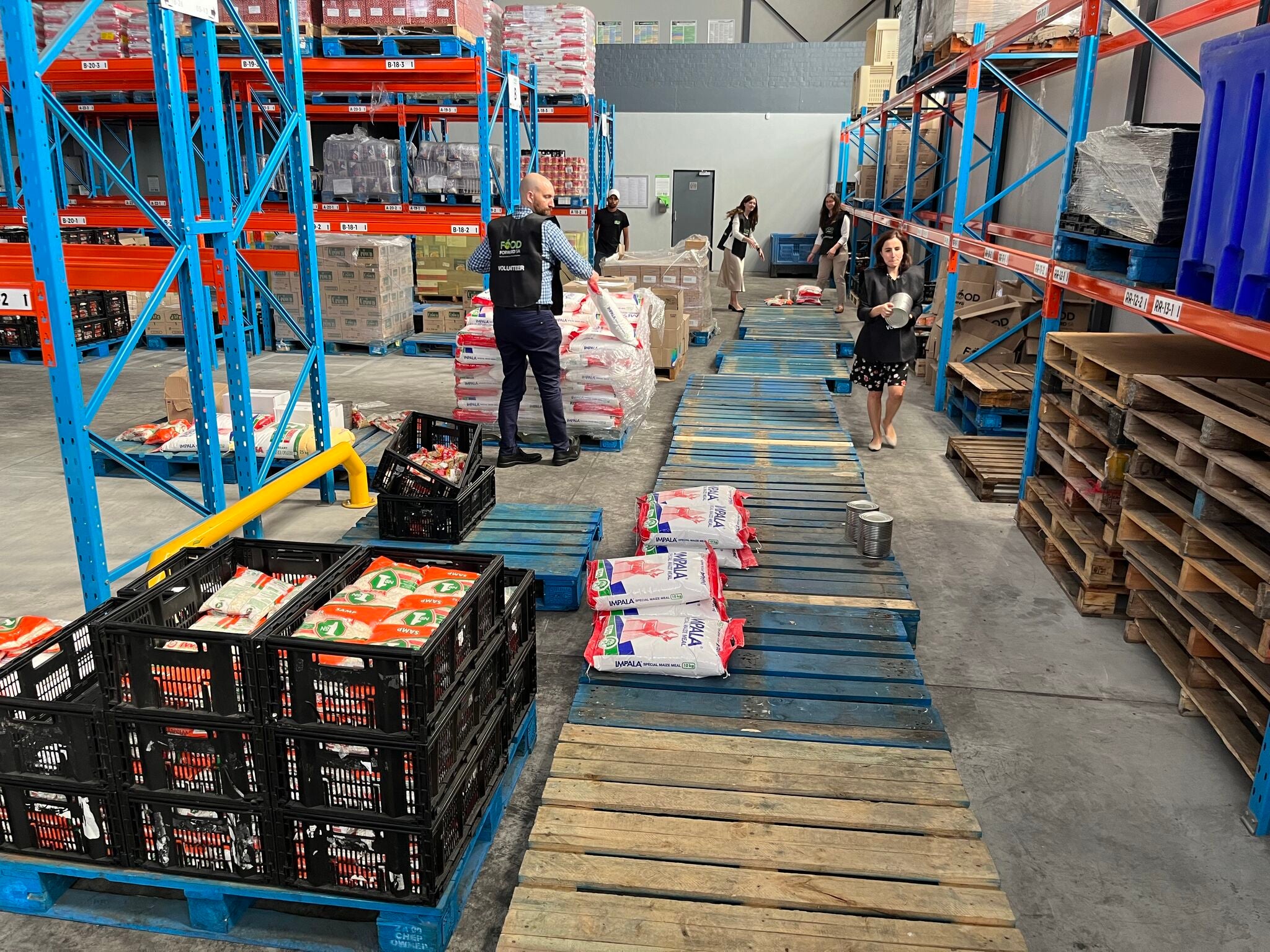By Kristen McEnroe ’24. Originally published on HLS Clinic Stories on Jan. 25, 2024
Like so many others, my entry into the workforce thrust me into the food and beverage industry. From flipping burgers at a snack bar at the age of 16 to being a barista at a local coffee shop in Newark, Delaware until I started law school, I saw firsthand how ubiquitous of a role food law and policy plays in shaping our daily life. Joining Harvard Law School’s Food Law and Policy Clinic (FLPC) brought what was once an unconscious awareness into an action-oriented light: everyone needs to eat. The who, how, what, where and why of this basic need are what matter to FLPC. By interrogating the ways in which laws, regulations, and policies affect every corner of the food system, the clinic provides an avenue to produce a meaningful impact on not only the system as a whole, but the human beings who enable its functioning.
Throughout my time with the Food Law and Policy Clinic, I have had the opportunity to hone my legal research and writing skills while collaborating with a variety of stakeholders and partners. In light of the obesity epidemic and growing burden of diet-related disease, I worked alongside the Director of the Food Law and Policy Clinic, Professor Emily Broad Leib and Clinical Instructor Trevor Findley to increase the amount of nutrition education provided to medical students and practicing physicians. The average American medical school offers nineteen hours of nutrition education, which accounts for less than 1% of total lecture hours.
We developed an issue brief (coming soon!) with policy recommendations for federal and state governments as well as medical education accreditation bodies to integrate nutrition into undergraduate, graduate, and continuing medical education curricula. The Nutrition Education for Doctors project provided an opportunity to engage with stakeholders in the medical education space, tailor my writing to a non-legal audience, and engage with materials like appropriations bills to understand the mechanisms of change within medical education.

In Fall 2023, I worked on the Global Food Donation Policy Atlas project in collaboration with our partners in South Africa, Food Forward South Africa (FFSA) and the Consumer Goods Council South Africa (CGCSA), to provide technical assistance to improve the country’s food donation landscape. Over the course of the semester, the FLPC team analyzed date labelling, liability protection, and food safety regulations that affect food donors, food banks, and food recovery organizations in South Africa. We gleaned insight from our partners about the political feasibility of improving liability protection for food donors and the government’s efforts to improve date labelling and food safety legislation.
During the 2024 J-Term, the Atlas South Africa team had the incredible opportunity to travel to Cape Town and Johannesburg to meet with our partners at FFSA and CGCSA to learn more about their organizations and have in-depth discussions about how we can collaborate to address barriers to food donation in the country. Throughout our trip, we also met with some of FFSA’s food donors ranging from major retailers to small farms and one of the beneficiary organizations that provides support to the Gugulethu community with the help of donations from Food Forward.
Moving beyond the Zoom screen and spending time with our partners in South Africa was not only fulfilling but integral to understanding the on-the-ground context of food bank operations and the feasibility of particular policy recommendations. Connecting with the amazing people who move this work forward and having the chance to explore and enjoy their favorite local spots with them was an experience that will stick with me far beyond my time as a law student.

Of paramount importance within every project is FLPC’s mission to place the needs of our partners at the forefront. Our goals are dynamic and flexible, designed to shift with the evolving needs of the partners and stakeholders with whom we work and the realities on the ground in their respective fields or countries. Over and above the skills I have developed by working in the food law and policy arena, what I will remember when I look back on my time with FLPC is the stellar group of people. The importance of food to our daily lives, its impact on the environment, and the practicality of the projects was what attracted me to the clinic in the first place. By the end of my first semester as a clinical student, though, it was the passion, the depth and breadth of knowledge, and the unwavering support of FLPC’s clinical staff that compelled me to continue as an advanced clinical student.
My time with the Food Law and Policy Clinic has been the highlight of my time at Harvard Law School, without a doubt shaping me into the law student I am today and the lawyer I will be in the future. I have come to learn that it is rare to find yourself in a position where the substance of the work is as interesting as the people with whom you have the opportunity to collaborate. When you encounter an experience like this, the only option is to cherish it and dive in as much as you possibly can. Thankfully, that is exactly what I did.


